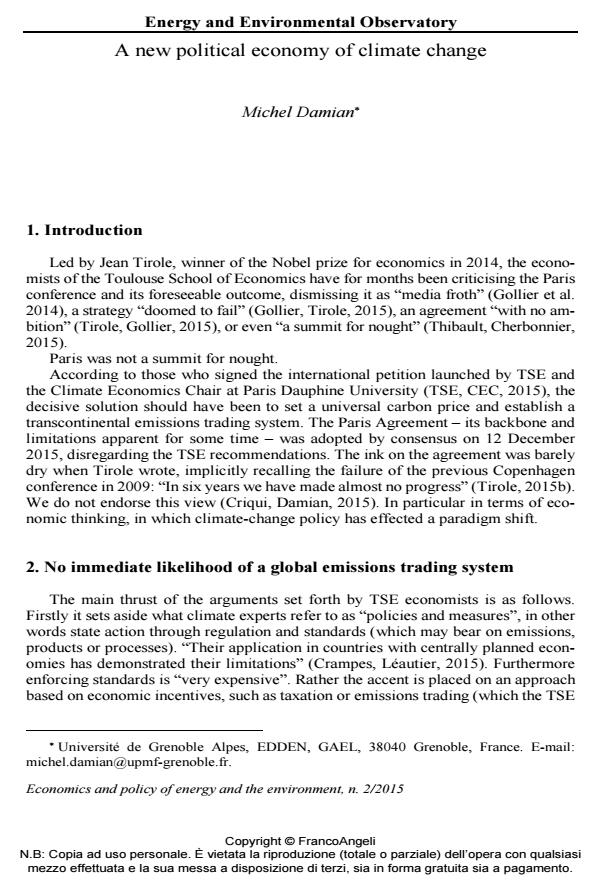A new political economy of climate change
Journal title ECONOMICS AND POLICY OF ENERGY AND THE ENVIRONMENT
Author/s Michel Damian
Publishing Year 2016 Issue 2015/2
Language English Pages 10 P. 5-14 File size 153 KB
DOI 10.3280/EFE2015-002001
DOI is like a bar code for intellectual property: to have more infomation
click here
Below, you can see the article first page
If you want to buy this article in PDF format, you can do it, following the instructions to buy download credits

FrancoAngeli is member of Publishers International Linking Association, Inc (PILA), a not-for-profit association which run the CrossRef service enabling links to and from online scholarly content.
This article responds to Jean Tirole, winner of the Nobel prize for economics in 2014 and the signatories of the international appeal launched by Toulouse School of Economics and the Climate Economics Chair at Paris Dauphine University who propose setting a universal carbon price and establishing a transcontinental emissions trading system. We hold that the Paris Agreement, which disregarded such recommendations, represents a paradigm shift. The new economy of climate change departs from the standard approach with regard to its economic instruments (emissions prices and quotas), returning to a classical political economy approach in terms of production economics. It confers a strategic role on methods and techniques for cutting emissions, as part of a long-term vision of energy and industrial transition. It is underpinned by the concerted action of States and multiple actors operating on various scales. There can be no magic wand to swiftly reduce greenhouse gas emissions while disregarding the real conditions of States, which all differ in terms of their relative development, technological capacity and political and social situation, not to mention the diversity of their values and priorities. .
Keywords: Paris Agreement, climate change, carbon price, carbon trading, political economy, regulation, decarbonization
Jel codes: Q54, Q58, F53
- De Rio 1992 à Marrakech 2016 : le Sud, acteur de la politique climatique Michel Damian, in Revue de la régulation /2016
DOI: 10.4000/regulation.12033
Michel Damian, A new political economy of climate change in "ECONOMICS AND POLICY OF ENERGY AND THE ENVIRONMENT" 2/2015, pp 5-14, DOI: 10.3280/EFE2015-002001